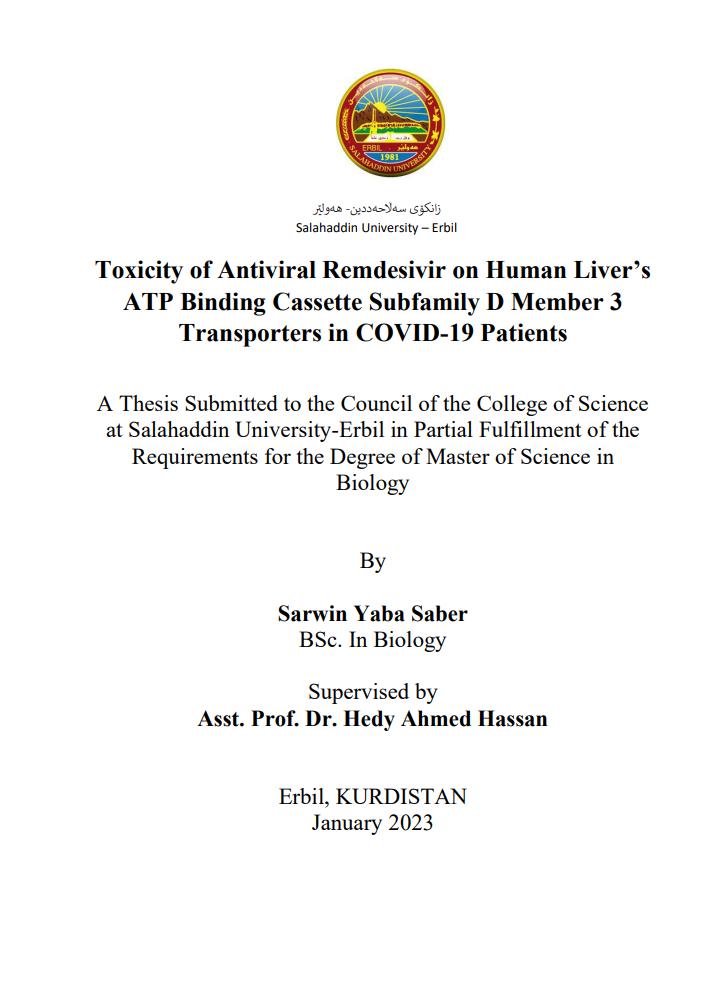
Summary
The World Health Organization advises against using the antiviral Remdesivir medication for treating severe COVID-19 infections due to its potential toxicity. The efficacy and toxicity of many medications are influenced by ATP-binding cassette (ABC) transporters, which play a significant role in the transport of several drugs used to treat numerous disorders. Therefore, this study focuses on examining the expression of ATP binding cassette subfamily D member 3 (ABCD3) to determine changes in their level of expression in response to Remdesivir. The ABCD3 cell signaling of Remdesivir, COVID-19 virus, or Remdesivir-exposed hepatocytes has not been extensively studied in the literature. In order to better understand Remdesivir effects on liver function, namely on the hepatic ABCD3 transporters and enzymes, this study is being conducted.
In this research we checked Remdesivir toxicity in COVID-19 patients who are admitted to the hospital, and examine the potential impact of Remdesivir on the phase III drug metabolism pathway, in particular, the ABCD3 transporters. In addition, examine the effects of Remdesivir on the serum levels of creatinine, Aspartate Aminotransferase (AST), Alanine Aminotransferase (ALT), C-reactive protein (CRP), and D-dimer in COVID-19 patients. Moreover, examine the impact of Remdesivir on the HepG2 human liver cell line’s cell survival, and examine Remdesivir impact on the ABCD3 gene expression in the HepG2 human liver cell line. Techniques such as Real-time PCR and cytotoxicity assay were applied. The hospitalized COVID-19 patients’ sera were tested using ELISA for the detection of ABCD3, Prestige24i for the detection of CRP, ALT, AST, and Nano-checker710 for the detection of D-dimer.
Our study indicated that Remdesivir is harmful to the liver HepG2 cell line in a dose-dependent manner. The toxicity of the drug is significantly raised at three dosages: 5, 10, and 20 µg/ml, in a virus-free liver cell line. Remdesivir suppressed ABCD3 gene expression both in the HepG2 cell line and in the sera of COVID-19 patients. The COVID-19 virus increases serum CRP, ALT, AST, and D-dimer levels. Remdesivir decreases serum CRP and transiently decreases D-dimer while increasing ALT, and AST levels.
Our study concludes that Remdesivir suppress ABCD3 gene expression and elevates most inflammatory indicators. Remdesivir damages liver cells without the help of the COVID-19 virus. The aberrant ALT and AST readings, and D-dimer variations all pointed to drug-induced liver injury. The liver damage tests tend to be more negative when ABCD3 is expressed, suggesting that ABCD3 may act as a barrier against the Remdesivir medication.
